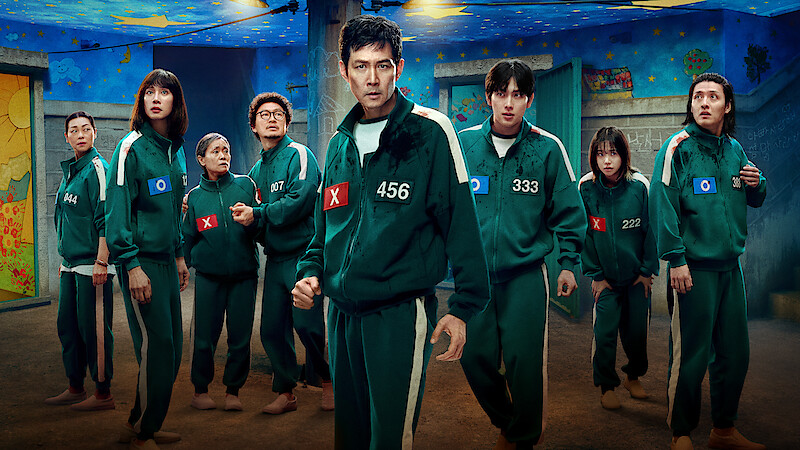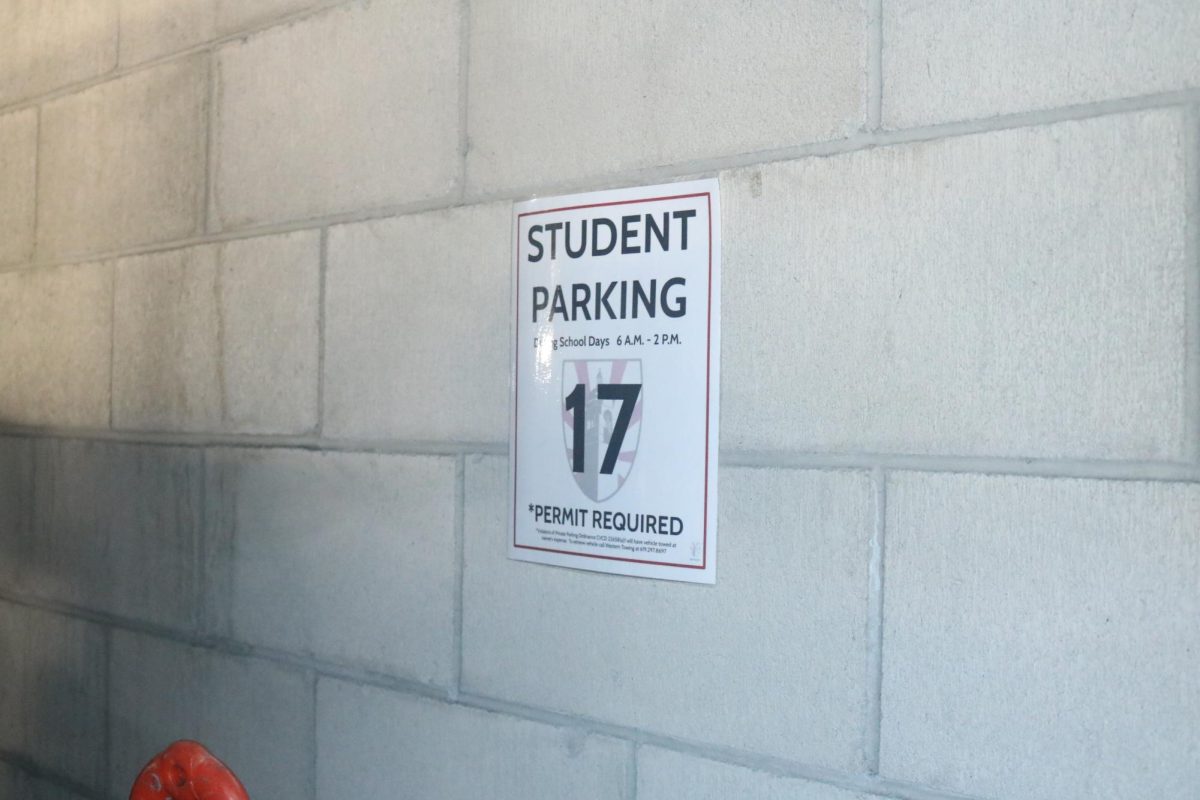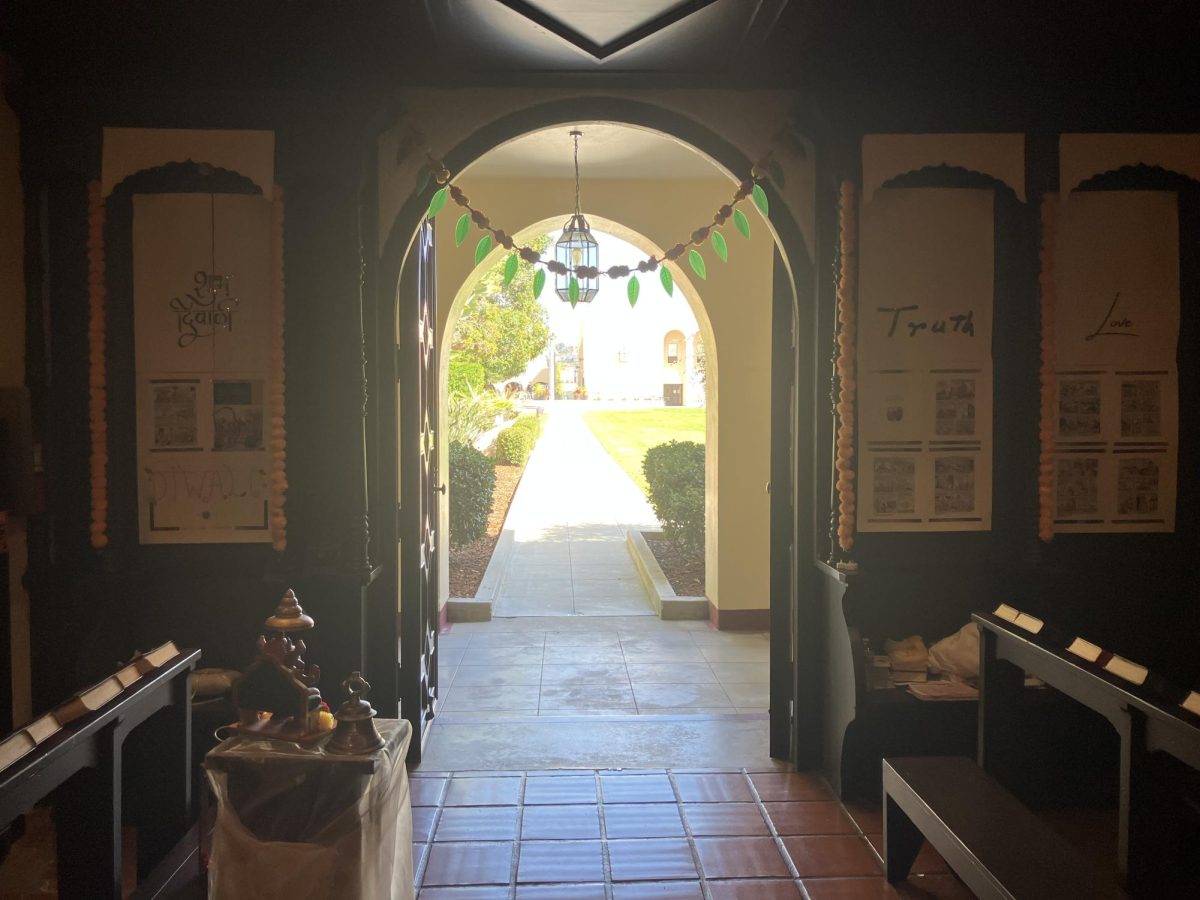Most people have heard the medieval legend of Robin Hood, an outcast leader stealing from the rich to save the poor, with his love interest, Marian, at his side. But what if Marian was Robin Hood?
That “novel twist on the story” as Theater Director Dr. Kristen Tregar put it, is the premise of Bishop’s 2024 fall play Marian, or the True Tale of Robin Hood. In this short, dramatic, and hilarious modern retelling of the Robin Hood legend, the storyline mixes over-the-top jokes with sincere, heartfelt moments of discovering who you’re truly meant to be.
The plot follows Robin Hood and the Merry Men (her band of outcasts) fighting back against Prince John and the monarchy by stealing gold from them for the downtrodden. The story includes thrilling fights, romance, characters finding their true selves, and, of course, an endless supply of jokes and amusing circumstances.
“It’s really just a fun play that doesn’t take itself seriously at all,” Lainie Beamer (‘25), who plays Marian/Robin Hood said. Naveen Hernandez (‘26), who plays Prince John, the Merry Men’s main antagonist, added that viewers are “supposed to laugh and make fun of” the theatrical, dramatic characters. As Dr. Tregar explained, “We’ve been doing a lot of serious plays … [that are] well established in the canon.” She added, “I wanted something that was going to be just light and fluffy.”
The Sheriff of Nottingham, played by James O’Brien (‘26), is a highly amusing persona that adds to its playfulness. The Sheriff, who helps Prince John defend the castle from Robin Hood, uses an exaggerated French accent that makes every line he says a joke in and of itself. Throughout the show, his French-accented quips, which included exclamations like “hon hon hon” and “macaron” made it hard to take his character seriously — but in a great way.
Lady Shirley, played by Leela Zaveri-Tabb (‘25) is another hilarious addition to the story. Though a noble herself, she is a friend of Robin Hood. Lady Shirley is prone to melodramatic lamenting over love, loud exclamations, and silly flirting, which is particularly entertaining in her scenes with the Merry Men, who want to come across as strong adventurers.
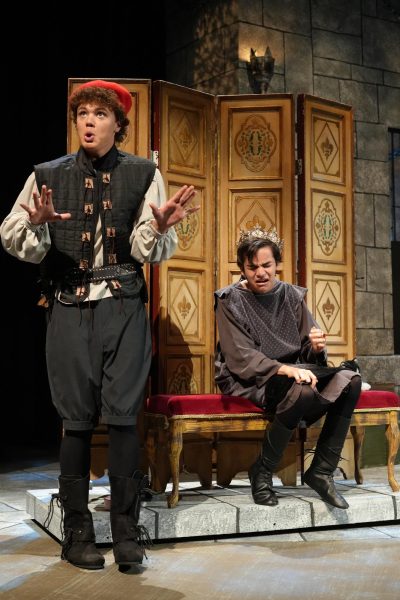
Little John, Robin Hood’s closest friend, is a sweet Merry Man whose jokes come from the fact that he is most definitely an airhead, often making loud declarations in confusion or excitement. In a heartfelt scene where other Merry Men reveal personal details about themselves to the larger group, Little John exclaims to Robin Hood, “What is happening!?”
And of course, Prince John is a character that’s impossible not to laugh at. As Naveen explained, “He is a greedy king, misogynistic and boastful, a cruel leader [who] … is quick to anger, and fond of pleasure.” The audience sees him bemoaning about his lack of gold, getting a massage in a fancy outfit, and using an evil laugh when he has something sneaky planned. In one scene, as he angrily stomps off stage, angered by Robin Hood’s shenanigans, he screams, “Never ever ever… ever!”
Many of the characters’ movements and personalities are over dramatic and unrealistic — but they’re meant to be that way. “The characters in Marian are supposed to be archetypes of larger themes,” Naveen explained. “Dr. Tregar really stressed the importance of putting 110% into every word and gesture, making them as big and unrealistic as possible. This is what makes the show funny.”
Despite all the humor, the show still manages to comment on more serious themes. Marian struggles with living a life true to herself, in a world that wouldn’t accept a female Robin Hood. “To be respected, feared, and keep herself safe, she must take on the persona of Robin Hood,” Lainie explained. “She must hide her true self to those she loves most.” At the end of the play, as Marian takes her dying breath after being shot with an arrow doing what she loves most (fighting the rich), she finally admits to Little John her true identity as a woman, and declares her love to him. As he reciprocates her proclamation of love and accepts her for who she is, Marian embraces her true self before dying.
Another character with a more serious storyline is Alanna Dale, played by Zara Zierhut (‘27). In addition to being the play’s narrator, Alanna is a talented archer who wants to be a fighter despite her female identity, similar to Marian. Alanna joins the Merry Men with Marian’s approval, disguised as a man. As she becomes more confident in herself, she develops a relationship with fellow Merry Man Will Scarlett. But in a hilarious and sweet moment, it turns out that Will and Alanna were both lying about being men — both of them are women. By the end of the play, the pair, still disguised as men, announces their relationship to their band of outcasts.
“Theater has a lot of power of thinking about social justice,” as Dr. Tregar said. “This goofy, silly play is still doing interesting work around themes of gender.” Alanna and Will’s relationship is a perfect example — their storyline and development is humorous, but also makes a more serious point about gender, sexuality, and accepting who you are.
Much the Miller’s Son’s character, portrayed by Madison Gasaway (‘28), also plays with gender: Much comes to terms with their non-binary identity and explains who they are to the Merry Men. “There’s just lots of different kinds of representation and I think that’s part of why I picked it … Representation on stage is really important,” Dr. Tregar said.
Ultimately, this play “really embraces just how much fun you can have onstage, how wild and random things can get, while still maintaining … a commentary on how we present ourselves, and our genders, to society and how that affects how we are treated,” as Lainie explained. But whether it’s due to the emotional scenes, the fight sequences, or the endless jokes, this play would make anyone smile.


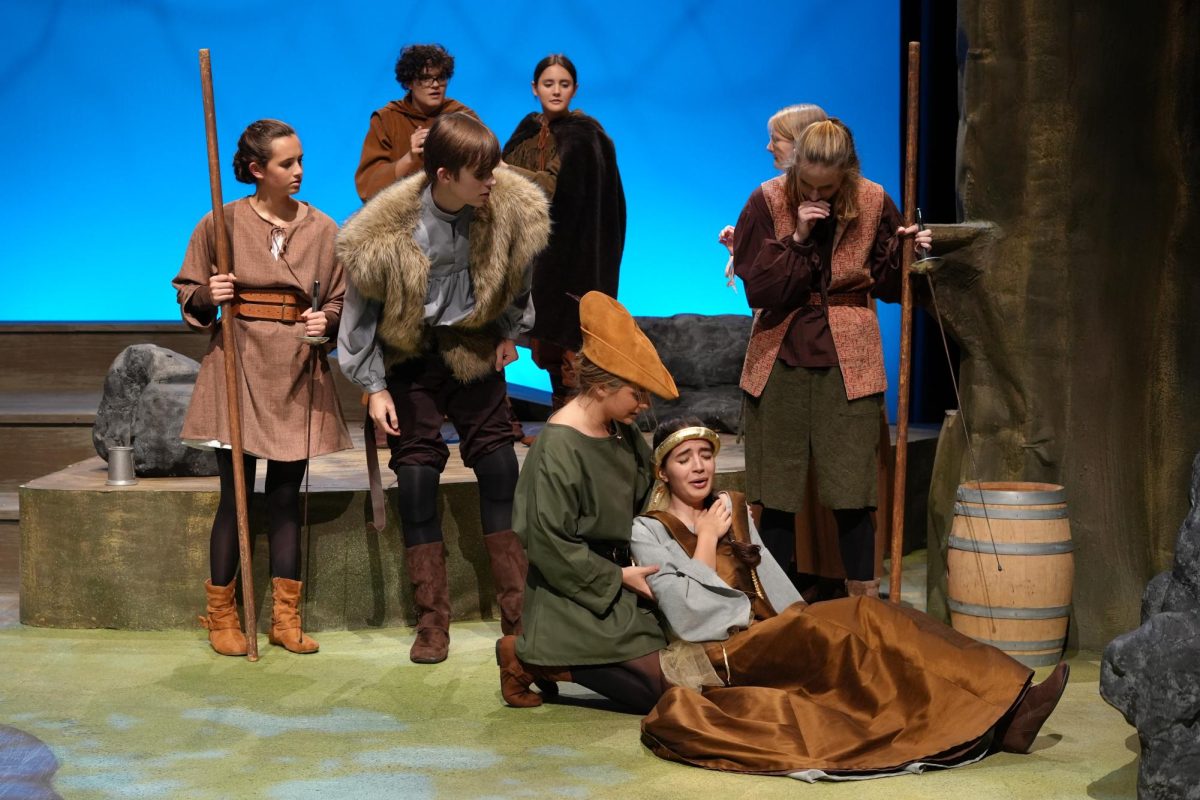
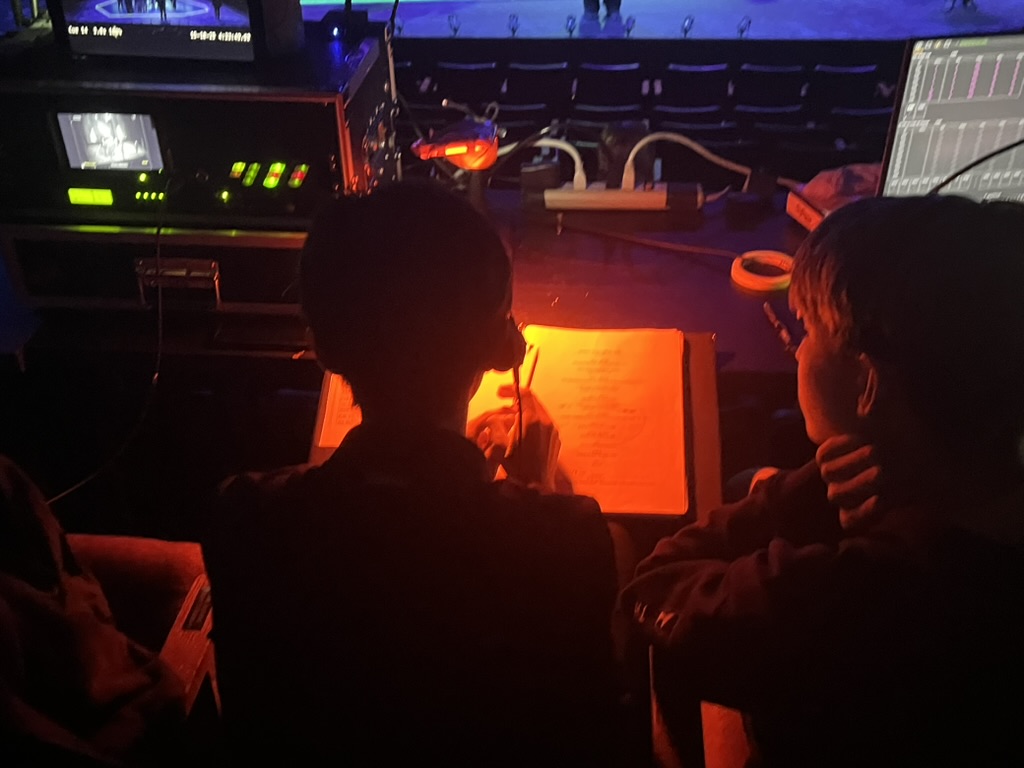
![Jackson Weisser (‘26), who played the title role of Beowulf, explained, “This adaptation specifically portrays Beowulf as having selfless motivations for a lot of his actions, and I think that's really powerful. Being more so a good person than a super physically intimidating person needing to fight all the time, is what I [want the audience to take away] from my performance of the character.”](https://thebishopstower.com/wp-content/uploads/2025/10/Beowolf26_047-800x1200.jpg)
![Leia (‘30) and Sara Park (‘32) ended their combative performance with a yell known as a kiyap. Leia explained with a proud smile, “I realized this when I was little, but not many people see taekwondo every day. For me, it’s a daily occurrence, so it feels very normal…when I do [a performance] in public, everyone’s like ‘Wow, that’s really cool’. So it always reminds me how this isn’t a normal thing in other people’s lives and I think it’s really cool that I can share that.”](https://thebishopstower.com/wp-content/uploads/2025/10/Screenshot-2025-10-02-at-2.07.47-PM.png)
